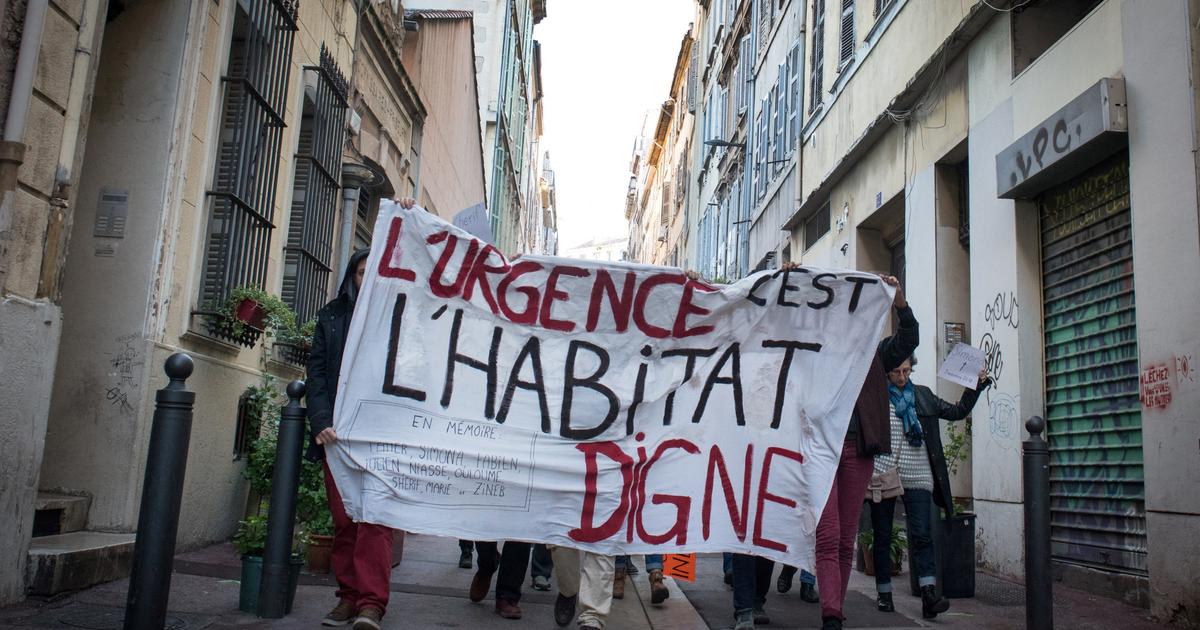The negotiation of the Housing law is stuck in its final stretch, which will inevitably exceed the promise made to Brussels to have it approved this September.
Some parts of the negotiation speak of a “blockade” and they all agree on the three points that are making the agreement difficult: the price caps on rentals, the use given to the Sareb housing stock (the bad bank) and the regulation of evictions.
In this last matter, the socialist part of the Executive has offered to the members of the legislature to reinforce mediation in the evictions of vulnerable families.
The proposal has been worked on by the Ministries of Justice and Transport (the former Fomento, which directs state housing policies) and refers to evictions of vulnerable households in properties owned by large owners.
The draft that reached Congress included the possibility that the court, in those cases, suspend the procedure for up to four months if it appreciated vulnerability.
But Podemos and ERC prefer to copy in the future state regulation what has already been legislated in Catalonia: that large owners (those who have more than 10 properties) have the obligation to offer a social rent before filing an eviction lawsuit.
The socialist part of the Executive sees this solution as problematic.
In fact, it was included in a decree of the Generalitat of 2019 that was judicially overturned.
Then the Parliament approved a law, supported by the PSC, which is being reviewed for possible invasion of powers.
Instead, what the socialist part of the Executive has offered is the obligation to go to a mediation and arbitration procedure prior to the complaint.
This process would be carried out through the autonomous communities and only if it did not prosper would it allow the judicial process to be initiated, which in turn would contemplate a second arbitration.
“If the problem is not resolved with the first mediation, at least the Administration is aware of the situation long before the eviction,” indicates a source familiar with the proposal.
In the Ministry of Transport they remember that in the current state housing plan there is a "priority" program that allows communities to have money for these situations.
In other words, the Administration could pay part of the rent to the vulnerable family to avoid eviction.
In Transport they believe that it is an acceptable proposal for their partners and that "it strikes a balance between the right to property, effective judicial protection, attention to the vulnerable and the action that the Administration must carry out".
But in United We Can reason in the opposite direction that their solution is also admissible for the socialists.
“We want the protection of the vulnerable without a housing alternative to become structural,” says a source from the Ministry of Social Rights.
That is, to somehow prolong what has been done during the pandemic, with a moratorium on certain evictions that is in force until December 31.
In the PSOE they argue that their idea meets that objective.
But anything that affects evictions,
415 amendments
The draft State Law for the Right to Housing was sent to Congress last February.
After saving an amendment to the entirety, which would have left the rule deadlocked, with a last-minute agreement with ERC, an arduous parliamentary negotiation began.
Of the 866 amendments presented, some 550 came from the partners of the legislature, including some from United We Can despite the fact that one of the ministries they lead, that of Social Rights, is a co-proponent of the project.
Currently, they point out in Transport, 415 amendments have been accepted or negotiated.
And what seemed like the main bump with ERC has been overcome: the guarantee that regional competitions will not be affected.
The PSOE partners also want the spirit of the Catalan rent regulation legislation (repealed by the Constitution) to be recovered with universal rent control in the so-called price-stressed areas.
This issue was one of the thorniest in the drafting of the draft and was resolved with a delicate balance: in those areas (
de facto
declared by the communities, which makes it difficult to apply them in territories governed by the PP), large companies homeowners would be subject to price limits while the rest of the landlords would have to freeze the amounts and would receive tax credits if they lower prices voluntarily.
In the PSOE they have already accepted that the control affects all the big owners (even if they are natural persons and not companies), but they insist on leaving the norm as it is for the small ones.
Another cession has been to lower the moratorium for the application of rent controls to 12 months, something that according to Transportes is due to "technical issues" because it is necessary to develop an effective price index.
Until now, the
vacatio legis
was for 18 months, but the result is the same: it would prevent us from seeing rent controls on large landlords in this legislature.
social flats
On the last thorny issue, that of the flats owned by Sareb (which since last April has been controlled by the State), Podemos insists on transferring all its homes to the public rental pool.
The aforementioned Transport sources are committed to talking about the orientation of the bad bank in other forums.
"It cannot be one more burden for the housing law," they argue.
In any case, everything will have to be decided in a dialogue that pushes deadlines and will once again coincide in time with the negotiation of the Budgets, which in the past has been an important lever for advancing positions on the matter.
What is clear is that what was promised to Brussels will no longer be fulfilled: that the norm would be approved this September.
Although there is a coincidence in that and neither the PSOE nor Podemos believe that this will complicate the reception of European funds.
Subscribe to continue reading
read without limits
Keep reading
I'm already a subscriber

/cloudfront-eu-central-1.images.arcpublishing.com/prisa/GILGQMRT5VLVXHUASO3EQOMJGQ.jpg)



/cloudfront-eu-central-1.images.arcpublishing.com/prisa/D3KKZZA5HZBEDA4TSYE7XVGSKQ.jpg)



